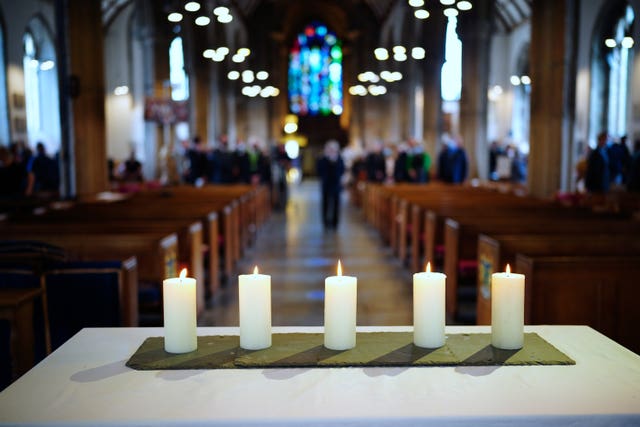
Ian Payne 4am - 7am
3 January 2022, 12:54

Campaigners say online companies must stop doing business with ‘disgusting’ hate groups.
There has been a six-fold rise in UK web traffic to websites promoting “incel” culture, new analysis has found.
The Centre for Countering Digital Hate found that UK web traffic data to three of the largest “incel” sites has grown from 114,420 monthly visits to 638,505, over the period of March to November 2021.
The Times reported that users on the sites referred to Plymouth mass shooter Jake Davison as a hero and called for “all women to be raped at least once”.
Davison, 22, killed his mother, Maxine Davison, 51, after a row and then shot dead four others in a 12-minute attack.
His social media usage suggested an obsession with “incel”, involuntary celibate, culture, which promotes the idea that society is defined by physical appearance.
In December 2021, the Law Commission recommended that existing hate crime legislation should be extended to cover hatred on grounds of sex or gender where “stirring up”, or incitement, is involved.
“What we are referring to is threatening or abusive material which incites and glorifies violence, including sexual violence, against women and girls, and praises men who murder women,” the Law Commission said.

Imran Ahmed, chief executive of the CCDH, told The Times: “Make no mistake, incel communities are bound together by an ideology which preaches hatred of women, and has inspired deadly real-world attacks.
“The web-hosting services and other companies who are enabling incels need to stop doing business with disgusting hate groups — or regulators, law enforcement and legislators must and will step in to protect the public.”
In December 2021, a parliamentary report recommended that the Government’s draft Online Safety Bill be strengthened, with paid-for advertising, cyberflashing, content promoting self-harm and deliberately sending flashing images to people with photosensitive epilepsy added to the scope of the Bill.
It also said the proposed regulator, Ofcom, should be given more powers to audit and fine companies in breach mandatory codes of practice that should be introduced, with named senior managers as “safety controllers”, who could be found liable if their company failed to protect users.